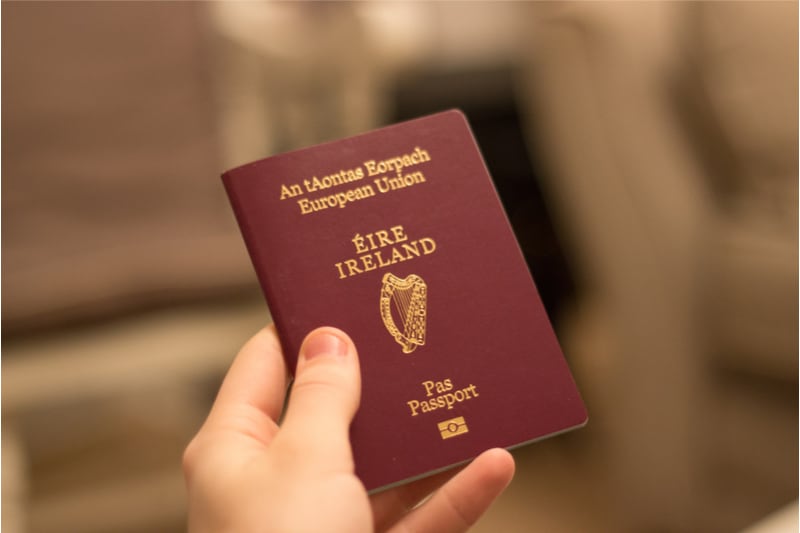UK tax on Irish rental income
An Irish citizen working in London is asked by HMRC to declare her rental income from Ireland
The Republic of Ireland is a short hop away from London and has a long-standing Common Travel Area (CTA) arrangement with the UK. Under the CTA, Irish citizens can live and work in the UK without a visa, residence permit or employment permit. This ease of movement may explain why many Irish citizens are working in London and contributing to the UK’s economy.
 While some Irish citizens may end up putting their roots down in the UK, others still prefer to retire in the Emerald Isle someday in the future. And considering the property market in Ireland is booming, it is not uncommon to see savvy investors getting a buy-to-let in Ireland now with the aim that they may move into the property later.
While some Irish citizens may end up putting their roots down in the UK, others still prefer to retire in the Emerald Isle someday in the future. And considering the property market in Ireland is booming, it is not uncommon to see savvy investors getting a buy-to-let in Ireland now with the aim that they may move into the property later.
Mary, our client, was doing just that. She purchased a lovely family home in a tree-lined residential street in Dublin a few years ago and now rents it out while she works in London. In the UK, she is on PAYE and in Ireland, she files the relevant Irish tax return each year. To Mary, her financial affairs are rather straight forward and there is no need to do additional reporting. Unfortunately, HMRC sees it very differently.
Declaring a rental in Ireland to HMRC
It is important to point out that every case is different and that you should always seek professional advice from a personal tax accountant first. In the case of Mary, the rental profits that she gets from renting out her Dublin property is subject to the Irish tax. However, Mary is also a tax resident in the UK and therefore, HMRC believes she should have declared her rental income from Ireland.
Declaring your overseas income may not result in you paying tax twice, but not declaring it may see you fined and penalised. Whether or not one has to pay tax twice on the same income source depends on the existence of a double-taxation agreement between the country of your foreign income and the country where you are a tax resident. In this case, Ireland has a double-taxation agreement with the UK and one should not be paying tax twice on the same income source.
Worldwide Disclosure Facility (WDF)
HMRC launched the Worldwide Disclosure Facility on 5 September 2016. The idea behind this is to encourage UK tax residents who have foreign sources of income to disclose them voluntarily. Considering that over 100 countries now share and exchange information under the Organisation for Economic Co-operation and Development’s Common Reporting Standard (CRS), the WDF should help to increase international tax transparency.
If you have foreign interests, chances are you need to make a disclosure through the WDF, and preferably you do it before HMRC sends you a letter. Not declaring may put you in an unfavourable position, as HMRC may think that you’re negligent or worse, you choose to conceal your foreign income deliberately.
If you aren’t sure if a disclosure is required, talk to our qualified personal tax accountants. You can choose to work with us and we can review your specific circumstance and make the best recommendations.
Examples of tax liabilities that you need to declare
- Income from letting residential property or land
- Capital Gains from assets that increased in value between the time you bought them and the time you sold or transferred them
- Income from running a business
- Income from freelance or commission-based work
- Income from accepting credit card or debit card payments
- Investment income
- Any other income that you should have paid tax on
Call TaxAgility on 020 8108 0090 about disclosing your foreign income on the Worldwide Disclosure Facility today.
Becoming your tax agent for Worldwide Disclosure
When Mary came to see our personal tax accountant, she was at a loss and naturally worried that she might be penalised financially. We worked with her to understand her circumstance and became her tax agent, representing her and helping her complete forms and calculate tax credits – in this particular case, since Mary has paid tax in Ireland, she was entitled to a credit which reduced her UK tax liabilities.
Upon seeing our work, Mary subsequently engaged us to handle her Self Assessment whereby we advised her how much tax to pay and when, if a tax credit is applicable, and prepare and submit her SA100 personal tax return to HMRC.
Personal tax accountants at TaxAgility
Tax issues can quickly become more complicated when you start to report foreign income to HMRC. Concerns such as one's domicile, the difference in tax year, or if double-taxation is applicable are valid and should be addressed professionally.
Thankfully, our personal tax experts are here to assist. Our top advice is don’t wait for HMRC to send you a letter. Instead, be proactive and let us understand if your tax affairs need to be disclosed through the Worldwide Disclosure Facility (or not).
Should a disclosure be needed, we can help to register you, prepare and submit your disclosure, work out how much tax, interest and penalties you may need to pay, and negotiate a payment arrangement if it is required. Working with you every step of the way, we can help ensure that you aren’t paying more than you should, and the disclosure matter will be completed quickly, efficiently and professionally.
Call us today on 020 8108 0090 and speak to a knowledgeable tax specialist in either our London Richmond-Upon-Thames office or our London Putney Office.
